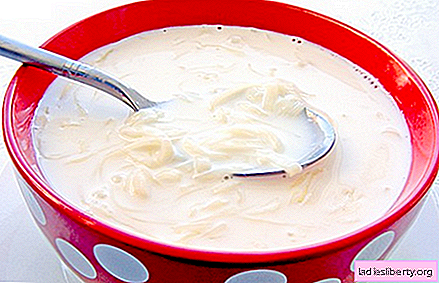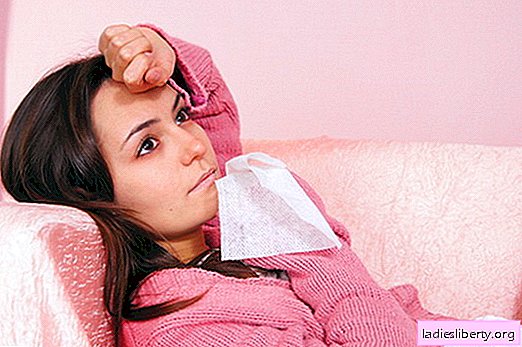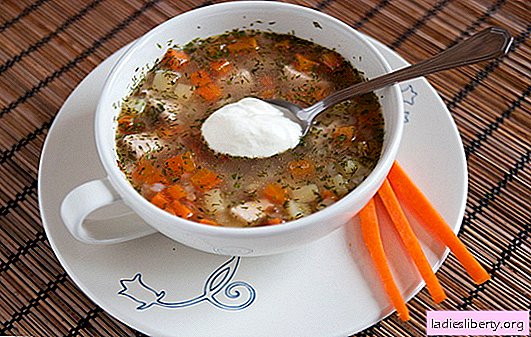
One of the most anticipated summer berries, strawberries are not only tasty, but also very healthy.
In addition to vitamins A, E, B, H, PP, it also contains a large amount of antioxidants that are extremely beneficial for the body.
Only 5-6 berries of strawberries are able to satisfy the daily requirement of the body for vitamin C.
Strawberry Allergy: Causes
By its properties, strawberries are superior to most vegetables, berries, as well as citrus fruits. It contains a huge amount of useful minerals and substances, such as fiber, folic acid, fluorine, iron, zinc, calcium, potassium and others. Strawberries have a beneficial effect on the digestive system and are useful for cardiovascular diseases.
But, unfortunately, the beneficial properties of this summer berry, or rather, the rich content of vitamins, flavonoids, essential oils and pectin in it, can turn into a real problem for an allergic person. Everyone so believes that fruits and berries grown in the summer have huge health benefits that we don’t even think that they can do harm.
Meanwhile, an allergy to strawberries is a very common problem that affects not only adults, but also children. And the reasons for this are as follows:
• Strawberries are able to accumulate in themselves chemicals that are used in its cultivation and storage, and which in turn can also be allergens;
• The strawberry fruit, which has a rather loose and porous structure, like a sponge absorbs all the pollen from plants that bloom at the time of ripening. And, as you know, pollen itself is a very strong allergen, from which many people suffer. It is impossible to completely remove pollen from berries;
• Strawberries increase the level of histamine in the body, which increases the likelihood of an allergic reaction if a person already has a tendency to other allergies.
• With caution, you need to eat strawberries for those who have allergy-prone people in the family, as well as those who have problems with the gastrointestinal tract, in particular gastritis and ulcers. In addition, in order not to provoke an attack of an allergy to strawberries, it can not be combined with dairy products. Dairy protein, contained in any milk product, is itself a fairly strong allergen.
How to recognize strawberry allergies
The main symptoms of an allergy to strawberries can be distinguished if, soon after the strawberries were eaten, swelling and itching in the mouth, tickling and tingling in the throat appeared. Often there is tearing with severe redness of the eyes, runny nose, severe sneezing. You can also recognize an allergy to strawberries by a rash on the skin that looks like hives, and at the same time is very itchy.
In some cases, the reaction to strawberries can be so strong that a person will develop anaphylactic shock. As a rule, it occurs during secondary contact with the allergen product. When an allergen enters the human body, the production of substances that are responsible for inflammatory reactions occurs. As a result, blood pressure decreases, blood vessels expand, airway narrowing, wheezing is heard in the lungs, blood vessels are easily passed through the blood plasma and edema occurs, the heart rate goes astray. A person who has had such a reaction becomes excitable, the heartbeat becomes more frequent, and a strong cough appears. Quincke's edema may occur, covering the face, throat and causing an attack of suffocation. Anaphylactic shock is an extremely dangerous reaction of the body to an allergen, it can literally cause a stroke in 2 minutes. Emergency medical care in this situation is vital for the patient.
Strawberry allergy in a child: how to avoid it
About 10% of children suffer from food allergies. If the child’s parents are allergic to the above berry, then most likely the child’s allergy symptoms will also appear in the child (runny nose, heavy breathing, swelling of the mouth and throat, itching, rashes on the body). More serious manifestations of an allergy to strawberries in a child are expressed in violation of the stool, vomiting, convulsions. As well as in an adult, a child may experience anaphylactic shock.
If there is a possibility that a child may have an allergy, it is by no means recommended to include strawberries in the menu of a child up to 1 year old. After a year, literally one berry can be given to a child, not forgetting to observe the possible symptoms of an allergy to strawberries. If there are no symptoms, you can gradually increase the amount of strawberries. It is worth remembering that an allergic reaction can occur during the day.
The best and most effective way to treat food allergies is to take antihistamines. They not only prevent severe consequences, but also remove the symptoms that are already present. To determine the correct dose, you need to consult a pediatrician.
If your child is allergic to strawberries, try to check the composition of all products, including various drinks, cosmetics, medicines, to make sure that they do not have an allergen dangerous for the baby.
Most products that are intended for children over 6 months of age have strawberry puree in their composition. Despite the fact that, pasteurized berry, only in very rare cases can cause an allergic reaction, caution should be exercised, and try each new product in small quantities.
According to research, it is known that the allergen is found in the red pigment of berries. Therefore, to feed a child, choose varieties of white strawberries. Also, do not give your child strawberries if the baby has gastritis, an ulcer or gastroduodenitis.
What is dangerous allergy to strawberries during pregnancy
Strawberry is not the best berry for a woman in a position, but this does not mean that it must be completely excluded from the diet. Eating these berries during pregnancy, you should be aware of some nuances.
An allergy to strawberries during pregnancy is dangerous not only for the expectant mother, but also for her unborn baby. It is highly undesirable to consume these berries in the first weeks of pregnancy, since strawberries can provoke a uterine contraction, which will lead to the threat of miscarriage, and at a later date - to premature birth.
After 22 weeks of pregnancy, the fetal immune system becomes more sensitive to foods that are present in the pregnant woman’s diet. In order to reduce the risk of a baby’s strawberry allergy in the future and reduce the risk of diathesis, it’s best to exclude strawberries from your diet during pregnancy.
How to be treated and how to provide first aid for allergies to strawberries
How to recognize an allergy to strawberries, and what symptoms are already known. Now consider how to provide first aid to the victim.
1. Thoroughly rinse the place of contact with the allergen (the entire oral cavity, skin, lips) with plenty of warm water;
2. If an allergic rash appears on the skin, a cold compress can be applied directly to the areas with the rash to reduce itchy sensations;
3. Take an anti-allergic drug (Suprastin, Zirtec, Fexofenadine, Claritin, etc.);
4. If the patient’s condition does not improve, it is necessary to consult a doctor or call an ambulance team.
If the symptoms of an allergy to strawberries are severe, that is, breathing is difficult, cramps in the throat, nausea, abdominal pain, dizziness, loss of consciousness, palpitations, etc., are necessary:
1. Call an ambulance team;
2. If a person is conscious, then he needs to be given an anti-allergenic drug, if this is not possible, then an injection of an antihistamine should be given. Antihistamines are used if it is necessary to quickly remove an allergic reaction. If an allergy attack caused anaphylactic shock, you need to get an injection of prednisolone or dexamethasone as soon as possible. These drugs are anti-shock and will help increase pressure and eliminate puffiness, which can provoke strangulation;
3. The patient should be laid down and freed from tight clothes (unfasten buttons, belt) so that it does not interfere with free breathing;
4. If the patient has begun vomiting, he should be turned to his side. This will reduce the risk of vomiting in the airways;
5. If there is a cardiac arrest and there is no breathing, resuscitation measures, such as artificial respiration and indirect heart massage, must be taken. This must be done before the arrival of doctors or until the functioning of the lungs and heart is restored.
In order to avoid complications from an allergic reaction in the future, even with minor symptoms, it is worthwhile to seek professional medical help, especially if an allergy attack has occurred in a child.
In severe allergic reactions, the patient should be hospitalized. In this situation, it is very dangerous to self-medicate. An experienced allergist will choose the optimal course of treatment, which is likely to include a special hypoallergenic diet that completely eliminates the product allergen from the diet.
Studies have shown that people who adhered to a hypoallergenic diet for a long time were able to reduce the body's hypersensitivity to a provocative product.











